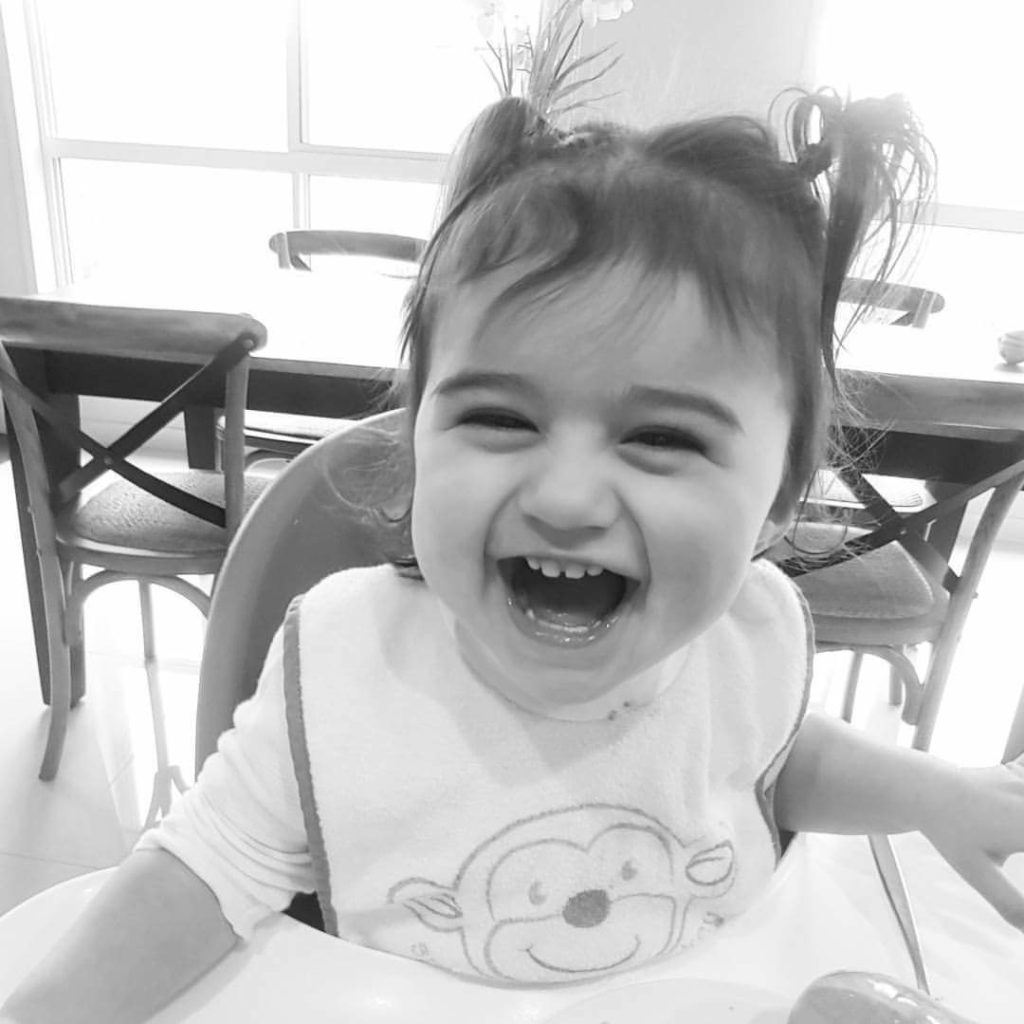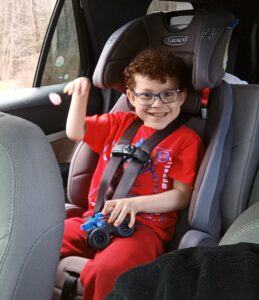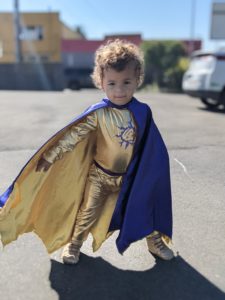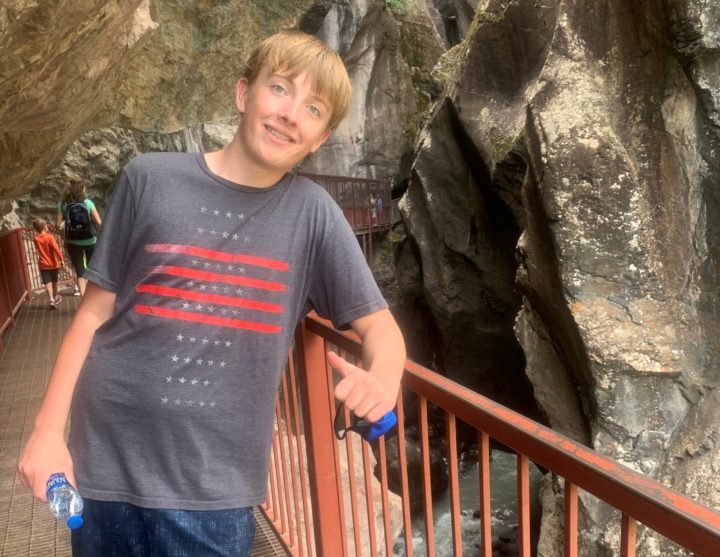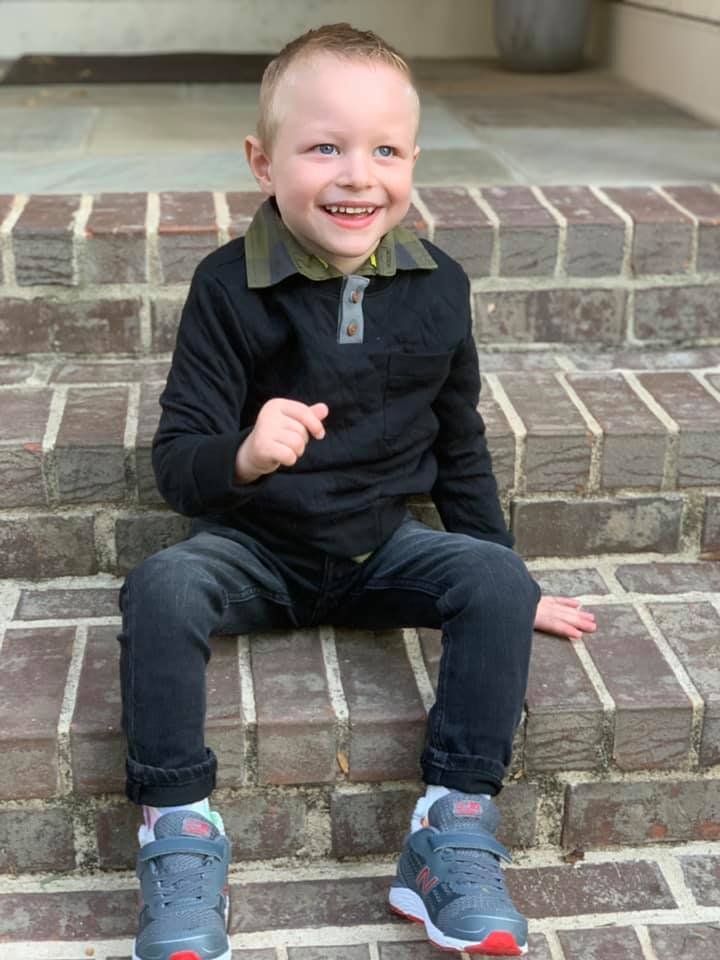Meet Emma — Perinatal Stroke
Emma’s story comes from Victoria, Australia.
Emma was born at 41 week’s gestation. A beautiful healthy girl, weighing 8lb 7oz. After 32 hours of labour she became stuck in my pelvis when I began to push and within minutes I was rushed to theatre for an emergency caesarean section. Her apgar scores were 9 after one minute of birth and 10 after 5 minutes. She was checked every day by a paediatrician in the hospital, and we only ever received positive feedback. She appeared to be a healthy baby. She struggled to latch on to the breast to feed (looking back now I know why it was so hard for her) but it wasn’t uncommon for a mother to find her feet with breast feeding, at that point there was no cause for alarm.
She continued to develop normally, and although she protested tummy time, she passed every check up with flying colours. It was when Emma was 9 months old, I noticed she had a preferred left hand. She would eat finger food with her left hand but her right hand and arm had dropped. When we played on the floor she didn’t grasp or reach with it. She didn’t lift her knees at all and while babies in my mother’s group were crawling or about to crawl, little Emma wasn’t even close.
It was the gut feeling, the maternal instinct that drove me to make an appointment and have her checked, just to be sure. Our maternal child health nurse saw her and noticed the lack of strength in her right side. “Don’t worry” she said. “It’s probably just a strength issue, nothing a bit of physio won’t fix.” She referred us to a paediatric physio and we saw her the following month.
We arrived in the waiting room and I remember seeing mums with kids who had children with mild to severe disabilities. I thought to myself, “Wow that must be tough”. Their faces were full of hope, love and pure exhaustion, and I never ever thought at that time that I would be that mum. We were called into our appointment and we met with Emma’s physio. She advised us that we should see a paediatrician who can further investigate why there was weakness in her right side. We continued regular physiotherapy appointments to help Emma learn to crawl and pull herself up to stand.
The first paediatrician we saw suggested Emma had a birth injury and insinuated that we were the victims of some sort of medical negligence. I wasn’t comfortable with his views and so we decided to seek a second opinion.
We saw the second paediatrician, and by this time Emma was 12 months old. He booked her in for an MRI. During the appointment, he confirmed she had right side hemiplegia. I just remember being so naive, thinking, “This is all routine stuff, there isn’t anything wrong, with a bit of physio, she will be fine”. It was when we walked into her appointment post MRI that the look on the doctor’s face said it all. Her scan had come back abnormal. What does abnormal mean, I thought to myself. That’s when he put the scan in front of me. This tiny precious brain with a significant mass, it was huge. I remember looking at her and thinking how are you alive? How does a child survive such brain damage? As most parents in this situation know, I didn’t hear much of what the doctor said after that, I just had tears rolling down my face. I was in shock, staring at the scan in disbelief and then staring at my beautiful girl. How could this happen to my sweet Emma? He then advised that she would be referred to a neurosurgeon at the Royal Children’s Hospital. I asked him if she would walk or talk, would she have emotional intelligence, is it cancerous, is she going to die, so many questions. He simply answered all of those questions with, “I don’t know….. we will have to wait and see”. So, for 8 weeks we waited to see her neurosurgeon. It was the most excruciating 8 weeks of my life.
We continued Emma’s therapy, and my Pinterest was filled with therapy ideas for home. I was also guilty of Googling brain tumour, porencephalic cyst, malignant tumour, benign tumour, all of these were “possibilities” in my mind. We saw her neurosurgeon and he confirmed that Emma had a stroke in utero and as such a very large Porencephalic Cyst had formed on her left parietal and frontal lobe. He observed her and couldn’t believe how well she functioned, crawling, talking, pulling up to stand and her ability to take emotional and social cues for her age. He described this as phenomenal! He said he would assess her in 6 month’s time for a possible shunt in her brain but to continue with everything we had been doing. He noted that if the scan had been done while I was pregnant, I would have been told that Emma was incompatible with life. I would have been advised to terminate the pregnancy.
Just recently, Emma has had her 6 month review. She is now 2 years old and recently scored 82 out of 100 for her typical 2 year old check-up, only losing points for not being able to walk. She has physiotherapy once a week, occupational therapy fortnightly and speech therapy every 3 months just to ensure she is still on track with her speech as the part of her brain that controls speech is completely missing.
Throughout this journey, I have learnt a lot about love, hope and patience. I am grateful for everything our sweet girl has achieved and will continue to support her in any way I can to help her become the best version of herself. The word “can’t” is never used in our house. Our goal as parents is to help Emma believe that she can do anything she puts her mind to, despite her cerebral palsy. Her neurosurgeon said to us, “If Emma wants to be a brain surgeon one day, never say she can’t, if she wants to fly a plane, don’t ever say she can’t. You as parents have to help her to believe anything is possible”. This will be our mission. I am also blown away by the support offered through therapists and the health system in general. In Australia we are very lucky to have a government that advocates for children and adults with disabilities. The funding for services and equipment has meant that Emma has everything she needs for a successful recovery.
Finally, I couldn’t be the special needs mother I am without the support of my very loving and hands on husband, my incredible family who embrace Emma’s needs, my parents, sister and her children who encourage her and cheer her on warms my heart like nothing else. My wonderful friends who are there for us any time of the night or day to offer a cooked meal, good company and even a cheeky glass of wine. Our health professionals who put their heart and soul into Emma’s recovery, their passion and guidance is invaluable. Emma and I have also been lucky enough to connect with another mother of an amazing little stroke warrior Anika. Kylie (Anika’s mother) and I realised when our girls were diagnosed that there is little to no awareness of paediatric stroke in Australia. We connected through the Stroke Foundation and formed a special bond through our experiences. We have just started a Facebook page “Little Stroke Warriors – Australia and New Zealand”. This will be a place where caregivers and paediatric stroke survivors can share resources, therapy ideas and offer support for one another. We have many projects in the pipeline, one being a website where caregivers can access information about services offered in their local areas. We also plan to raise much needed awareness about the signs of paediatric stroke. Emma had been carrying these signs for a few months before I had noticed anything was amiss. Many parents go through this with their child. Where there is a delayed diagnosis, it often this some early intervention opportunities have been missed. Emma continues to defy all odds against her. She can crawl, talk in sentences and is almost walking independently. She is about to start Botox treatment in her hand and arm. We don’t know what the future holds, but one thing is for sure, it will be bright and she is the sunshine of our life!
Help us #MakeMayMatter for kids impacted by stroke! Share this story and #BeAVoice for pediatric stroke.
